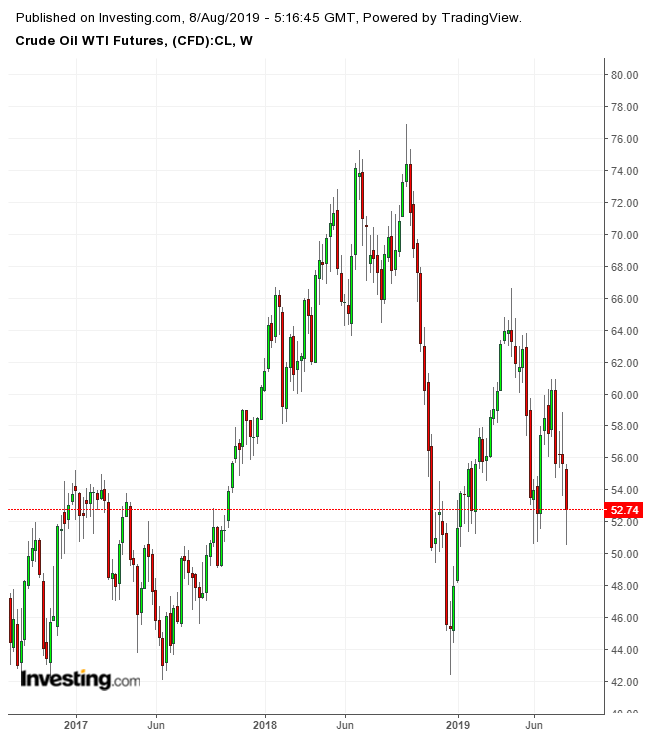Oil prices have been dropping again, driven down by fear that the U.S.-China trade conflict won’t be resolved and will plunge both countries into oil-demand-killing recessions. At the same time, oil production in the United States remains strong, at about 12.1 million bpd, and it is expected to climb to 13 million bpd by 2020.

With WTI now in the low $50 per barrel range, however, will fracking companies be able to maintain their current rate of production? And what if the prices head even lower?
The truth is, we don’t really know if investor appetites are strong enough to continue pouring money into fracking companies. A number of factors could influence investing decisions including, interest rates and the availability of other appealing business ventures. Here’s what we do know:
The Price Of Shale Oil Matters
According to the Dallas Federal Reserve, shale oil companies, in general, must sell their oil for an average of $50 per barrel to be profitable. The exact price varies largely by region. While drillers in the Permian need only $48 per barrel, drillers in the Eagle Ford area require $51; those in some areas of Oklahoma need $53 per barrel.
Based on this research, as long as oil prices don’t dip into the $40s, shale oil companies should be able to continue to drill and to expand drilling operations. It helps that more pipeline capacity is coming online in 2019, and these companies have drilled-but-uncompleted wells (DUCs) that can be cheaply and easily put into production.
If prices remain in the low $50s, production may persist but serious profits will not. According to the Wall Street Journal, even companies that tout breakeven in the $40 range require pricing above $50 per barrel to make a profit. This is because the “breakeven price” usually doesn’t include the costs of land, overhead and transportation.
However, the shale oil industry is significantly more consolidated now than it was during recent price downturns. The big-name producers that dominate the industry— Chevron (NYSE:CVX), Chesapeake Energy (NYSE:CHK), ExxonMobil (NYSE:XOM), Occidental (NYSE:OXY) and Pioneer Natural Resources (NYSE:PXD)—are better equipped to weather low prices, even at a loss.
The Impact Of U.S. Production
Nevertheless, as the price of oil flirts with that breakeven line for many shale firms, it is important to keep an eye on news of closures, mergers and mothballing. While the oil markets are focused on trade negotiations and demand, the current unprecedented amount of U.S. production is probably the second most important dynamic in the market. If U.S. production drops because of low prices, the market will react.
